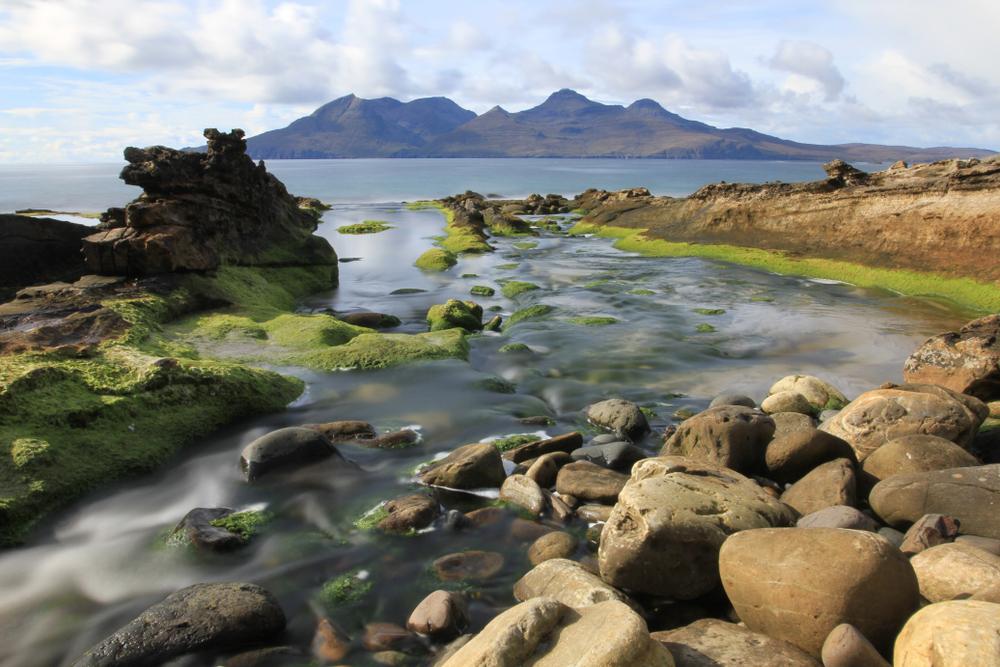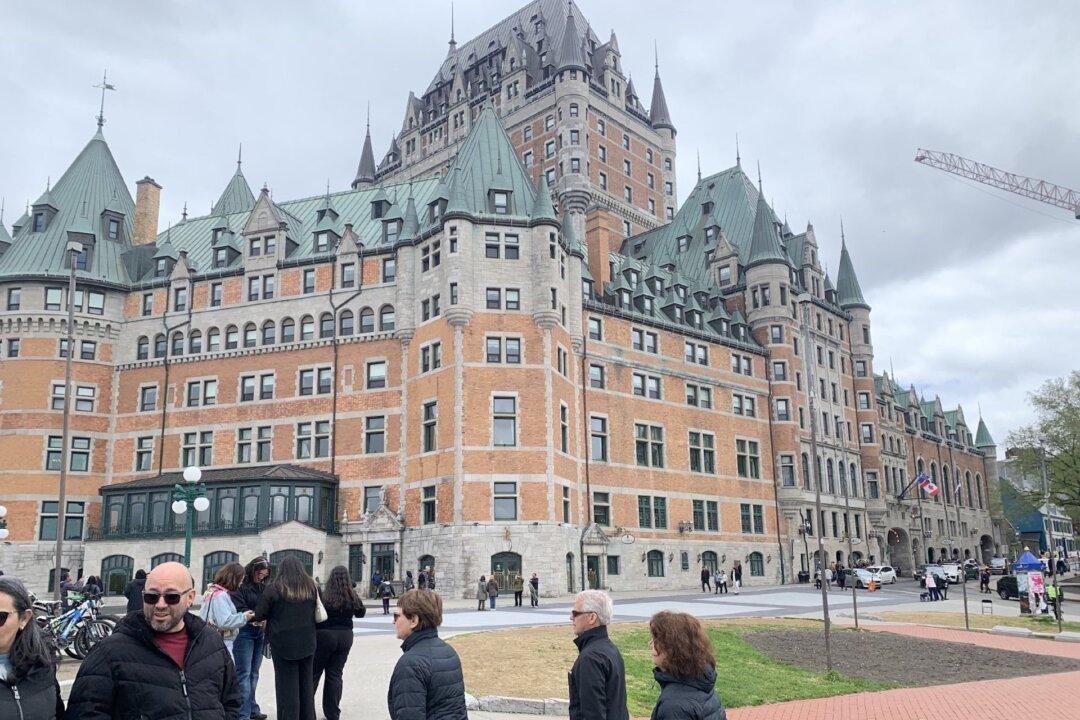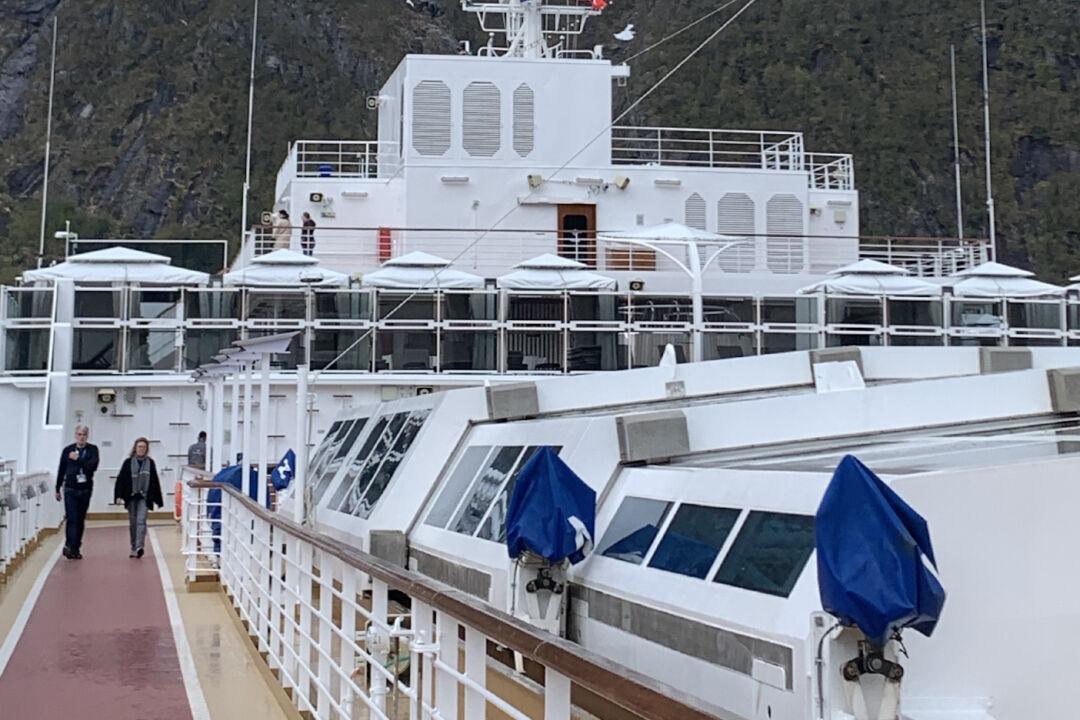“If you’re going to get sick, be sure it’s on a Wednesday,” my Isle of Eigg tour guide/driver Brian Greene said. “That’s the day the doctor arrives by ferry from Skye.”
Greene was filling in for Charlie Galli, this Scottish island’s usual taxi driver (and only source of public transportation), who was stuck on the mainland for a week awaiting space for his van on the ferry to return home. So Greene, who has lived on this 3-mile by 6-mile Inner Hebrides island since 1979, had volunteered his car to drive my husband, Carl, and me on the single-track road around this gorgeous green area, affectionately dubbed the “People’s Republic of Eigg” by its population of 109.





